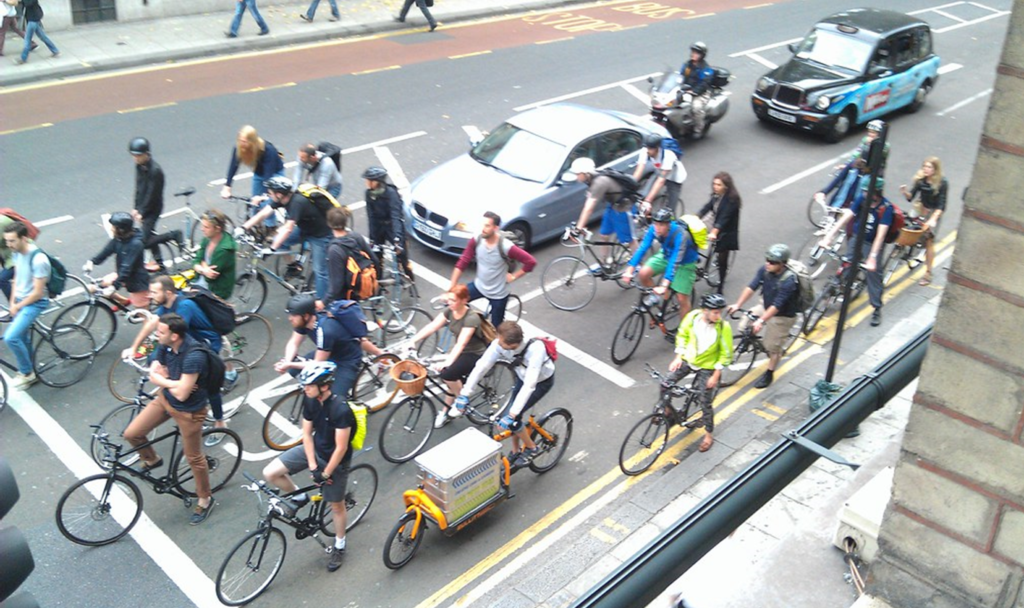The energy transition must make society better and not leave people behind
In December we wrote about the world’s drive to achieve net zero carbon emissions by 2050. A laudable goal, the World Energy Outlook (WEO) 2020 illustrates a possible path to getting there. This would be achieved through electrification (using clean electricity sources), efficiency gains and behaviour changes. The first two of these require technology solutions. The third, behavioural change, requires human commitment to change, often meaning a form of personal sacrifice. Turn down the thermostat in winter and up in summer, walk or bike instead of drive, eat less meat, and so on.

In other words, stating a need for behavioural change is a way of saying that human beings are excessive users of the planet’s limited resources which can only be overcome if we temper our desires. Unfortunately, telling people they have to endure some level of hardship may work for some in the environmental community who believe we need to pay for our environmental recklessness, but in real life, we are not going to achieve our goals by asking people to lower their standard of living.
The ongoing covid pandemic provides lessons to us all. It has highlighted current inequities in our societies in a way that we can no longer ignore. There are two economies, one for the well off, who can work from home and are saving money as they temporarily consume less. Then there are those who earn lower incomes who still must go out to work risking both their and their families’ health. We even call them “essential workers” although we certainly don’t treat them as such.
We are all living in a temporary state of emergency, where we are asked to change our behaviours to keep ourselves, our families, and our communities safe. Even faced with daily numbers of sick and dead, many are not willing to maintain these behaviours as they are anathema to our normal lives. If we can’t convince people to temporarily change their behaviour in a short-term crisis, how will we convince them to permanently change to benefit the longer term? Are we really going to make our lives less comfortable so that our grandchildren will inherent a better world?
The reality is no. We may give up plastic straws and put a solar panel on our roofs. There are no shortages of gestures we can do to tell the world we are trying and have good intention. But in reality, no one is willing to make their life more difficult because it is good for society. After all, access to economic abundant energy has made our lives better in every way. We will not move backwards.
One example is our use of cars. The WEO suggests this an area where behavioural change is required. Slower speeds and less automotive use (walk or bike for shorter trips) are needed. Unfortunately, if we look to North America as an example, the trend has not been positive. In recent years people have moved away from small cars in droves to larger SUVs, to the extent that some major auto manufacturers are removing many standard vehicles from their offerings. For example, Ford has said that in excess of 90% of its sales in North America are for trucks and SUVs, to the point where it has stopped production of all but two of its passenger cars.
And doing with less is only a possibility for those that have in the first place. For those less fortunate, they suffer from not having enough access to energy. And the access they have is not easily modified. We all understand that a price for carbon can be an effective way to incentivize change. However, it must be accompanied with reasonable alternatives to be effective. For those earning minimum wage who drive to work without access to any alternative means of transport, even a modest increase in their weekly fuel cost can be economically devastating.
The answer is clear. Provide access to abundant economic reliable clean energy. And this is where nuclear power shines. With its high energy density, low carbon footprint and nearly endless supply of fuel, it is well positioned to power our society into the future. This will not require sacrifice and can bring energy to those who are currently under served.
Bill Gates has been out promoting his new book, “How to Avoid a Climate Disaster: The Solutions We Have and the Breakthroughs” noting we need to go from emitting fifty-one billion tons of greenhouse gases every year to zero. This requires we make big and hard changes. (Have not yet read the book and will comment more after I have.) He notes there is a “green premium”, the increased cost of doing something in a low carbon way compared to the current higher carbon way. He suggests the priority should be to innovate to reduce these Green Premiums; not to make people suffer from these higher costs, nor to ask them to make do with less. His objective is to get these premiums “so low that even developing countries with growing energy needs and relatively scant financial resources will adopt zero-carbon ways of doing everything from making steel and cement to generating electricity.”
Fighting climate change needs to reduce inequities to succeed, not force those among us who are least advantaged to do the heavy lifting, nor expect that others will happily find a way to do with less. This means providing abundant, economic, reliable and clean energy to make a better future for us all – and nuclear power is the energy source that can help us get there.





2 Comments
Bruce · March 7, 2021 at 9:03 pm
Keep up the dialogue. I sense the world is coming back to nuclear. I strongly believe nuclear is a major part of the solution.
Keep up the good work..!!
Patricia Wieland · March 13, 2021 at 9:19 am
Milton, always clear and thoughtful! I so much enjoy reading your blog.
Comments are closed.